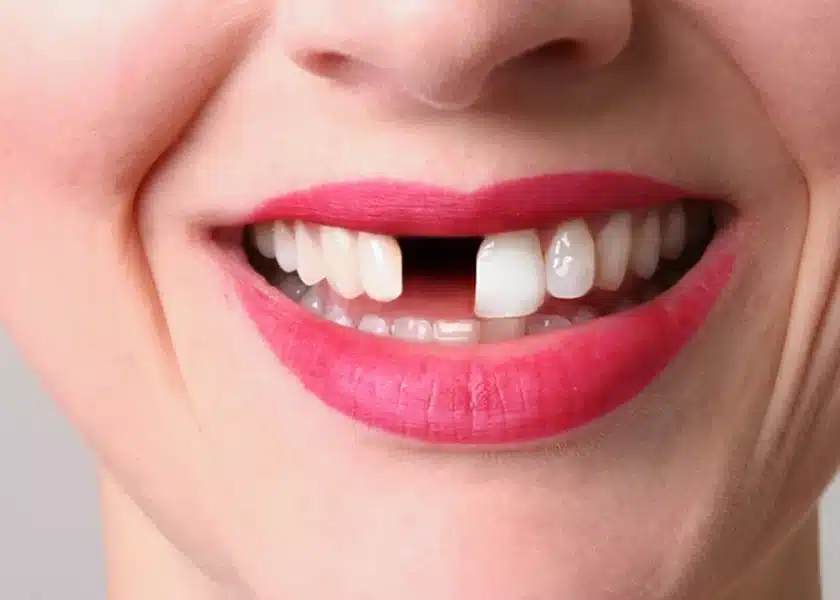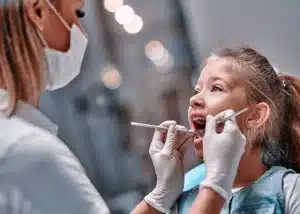Emergencies are unpredictable, and a broken tooth emergency can happen when you least expect it. Whether from an accidental fall, biting down on something hard, or even a sports injury, a broken tooth can be a painful and alarming experience. However, knowing how to manage the situation until you can see a dentist can make all the difference in preserving your dental health and minimizing discomfort.
At Diamond Dental in Mt. Vernon, we understand the urgency of dental emergencies and are here to provide you with expert care and guidance. Here’s what you need to know about managing a broken tooth emergency:
Is Broken Tooth an Emergency?
Not all broken teeth require immediate dental attention. Minor chips or cracks may not cause significant pain and can often wait for a scheduled appointment. However, several situations constitute a broken tooth emergency and require a dentist’s care within 24 hours:
- Severe pain: A sharp, throbbing pain is a sign of nerve damage and necessitates prompt attention.
- Excessive bleeding: While some minor bleeding is normal, persistent or heavy bleeding requires a dentist’s intervention.
- Visible pulp: If the pink tissue inside your tooth (the pulp) is exposed, it’s a dental emergency. This pulp contains nerves and blood vessels, making it sensitive and susceptible to infection.
- Loose or knocked-out tooth: This is a critical situation. Time is of the essence for preserving the tooth.
- Difficulty biting or chewing: If the break significantly affects your bite function, it requires prompt attention to prevent further damage.
What to Do Before Visiting the Dentist for a Broken Tooth Emergency?
Keep Calm and Assess the Damage
Remaining composed is your first line of defense in handling a broken tooth emergency. Assess the extent of the break to determine the necessary steps. While minor chips may cause minimal discomfort, more severe breaks can lead to intense pain and bleeding.
Rinse Your Mouth
Begin by gently rinsing your mouth with lukewarm water to cleanse the affected area. Avoid extremes in water temperature, as they can worsen sensitivity. Take care not to swallow any loose tooth fragments, and if feasible, retrieve and preserve any broken pieces.

Control Bleeding
If there’s bleeding, apply light pressure to the affected area with a clean piece of gauze or soft cloth. This aids in stemming the bleeding and easing discomfort. Refrain from using tissue or paper towels, as they may leave residue.
Reduce Swelling
Ease swelling by applying a cold compress to the exterior of your cheek near the broken tooth. This can alleviate swelling and provide pain relief. Wrap an ice pack in a thin cloth and apply it for 15-20 minute intervals, allowing breaks in between applications.
Manage Pain
Over-the-counter pain relievers such as acetaminophen or ibuprofen can offer temporary relief from toothache. Adhere to the dosage instructions on the packaging and avoid directly applying painkillers to the broken tooth to prevent irritation.
Protect the Broken Tooth
Prevent further damage by refraining from chewing on the side of the broken tooth. Opt for soft foods and steer clear of extreme hot or cold temperatures. If feasible, shield the broken tooth with dental wax or sugarless gum to minimize sensitivity and safeguard it from additional harm.
Utilize Temporary Dental Solutions
Temporary dental cement, available at many pharmacies, can be used to stabilize loose pieces of the broken tooth. Follow the instructions on the packaging meticulously and employ it as a short-term measure until you can visit a dentist.
Handling a broken tooth can be daunting, but with these strategies, you can effectively manage the situation until you receive professional dental care. Remember to schedule an appointment promptly to ensure timely and appropriate treatment for your broken tooth.

Why Choose Diamond Dental for Your Broken Tooth Emergency?
At Diamond Dental, we understand that a broken tooth emergency can be a stressful experience. We are committed to providing prompt and compassionate care for dental emergencies. Here’s what sets us apart:
- Experienced dentists: Our team of experienced dentists is skilled in handling broken teeth and other dental emergencies.
- Emergency appointments: We prioritize emergency cases and make every effort to schedule you for an appointment as soon as possible.
- Comfortable environment: We offer a comfortable and welcoming environment to ease your anxiety during this stressful time.
- Advanced technology: We utilize advanced dental technology to diagnose and treat broken teeth effectively.
- Patient-centered care: We believe in clear communication and work with you to understand your concerns and develop a personalized treatment plan.
Schedule an Emergency Dental Appointment in Mt. Vernon, WA
Even if the pain diminishes and the situation appears to be manageable, it’s imperative to seek prompt attention from our emergency dentist in Langley. Professional intervention may be necessary to prevent infection, further deterioration, or complications.
Don’t wait in pain! If you’re experiencing a broken tooth emergency in Mt. Vernon, WA, contact Diamond Dental immediately. We’re here to help you manage the pain and get your smile back on track.
Call us at (360) 512-7258 or schedule an emergency appointment online.
Remember, early intervention is key to a successful outcome and minimizing future complications.
At Diamond Dental, your smile is our priority!
FAQ
Utilizing over-the-counter pain medications such as ibuprofen or acetaminophen can provide temporary relief from discomfort. It’s important to adhere to the recommended dosage and follow the instructions on the packaging diligently. Steer clear of extreme temperatures and sugary foods: Consuming hot, cold, or sweet foods may exacerbate sensitivity in the cracked tooth.
Dentists typically advise addressing a cracked tooth at the earliest convenience, as delaying treatment could escalate symptoms or trigger further complications, potentially necessitating an emergency response.
When a tooth becomes infected, bacteria have the potential to spread from the tooth to the surrounding bone or tissue, resulting in the formation of a dental abscess. Such an infection can escalate to sepsis.








